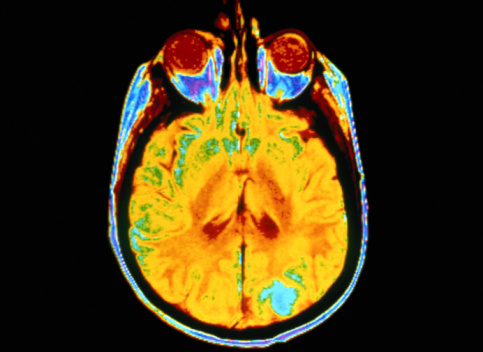 Bomb blasts have affected more than half of all U.S. troops in Afghanistan in the last year. Although new policies should increase the numbers of soldiers screened, only 20 percent of last year’s soldiers received examinations to check for concussion after being involved in a bomb blast. Doctors should screen any soldier within 50 meters of a blast for potential brain injury.[1]
Bomb blasts have affected more than half of all U.S. troops in Afghanistan in the last year. Although new policies should increase the numbers of soldiers screened, only 20 percent of last year’s soldiers received examinations to check for concussion after being involved in a bomb blast. Doctors should screen any soldier within 50 meters of a blast for potential brain injury.[1]
Medical screening for blast wounds is vital. Even when concussions are recognized, many soldiers have difficulty proving their injuries. Although most soldiers can return to the field after just two weeks, between 5 and 15 percent of concussion suffers will have lasting problems. They may have trouble concentrating or following instructions. Headaches and vision problems can also persist, along with emotional difficulties.
Medical Scans Ineffective
The tools available to diagnose brain injuries are often ineffective. An MRI scan will only recognize the injury in approximately 10 percent of patients. CT scans are also a weak tool for diagnosing brain injuries. Doctors must observe soldiers and recognize the signs and symptoms of concussion in most cases. At the same time, the Army faces a severe shortage of neurologists.
When other physicians must be relied on to observe patients and diagnose injury, they are less likely to recognize the signs and symptoms. Some doctors will not believe a soldier’s report of injury, assuming the soldier simply does not want to return to combat. When that happens, soldiers experience a greater risk for a second concussion that could cause death or chronic traumatic encephalopathy, a debilitating condition that robs sufferers of their memory and judgment faculties.
Hard to Prove Injuries
T o make matters worse, soldiers who sacrifice themselves in duty have been denied well-deserved Purple Heart medals because they could not prove their injuries. The Purple Heart requires that the soldier have documented treatment that clearly justifies the award. Many senior commanders and doctors see concussion as a mild injury, undeserving of the honor. Earlier this year, the Army issued guidelines that will allow commanders to recognize concussion as an injury like any other that deserves a medal. Today, many soldiers are appealing denied medals, hoping finally to receive recognition for their valor.
o make matters worse, soldiers who sacrifice themselves in duty have been denied well-deserved Purple Heart medals because they could not prove their injuries. The Purple Heart requires that the soldier have documented treatment that clearly justifies the award. Many senior commanders and doctors see concussion as a mild injury, undeserving of the honor. Earlier this year, the Army issued guidelines that will allow commanders to recognize concussion as an injury like any other that deserves a medal. Today, many soldiers are appealing denied medals, hoping finally to receive recognition for their valor.
Despite better recognition of concussion as an injury, many brain-injured soldiers receive treatment for other disorders not recognized as results of the concussion. Doctors commonly fail to identify Post-Traumatic Stress Disorder or depression as conditions related to a head injury.
This problem exists in other branches of the military where commanders have yet to recognize the realities of concussion. The Marine Corps only considers concussion for honors if the soldier lost consciousness, yet severe brain injuries and ongoing problems can easily arise from concussions that did not cause loss of consciousness.
While all branches of the military are working towards a better understanding of brain injuries, much is still lacking. Only when soldiers have access to the same treatment options as civilians will the situation improve.
Contact Us
If you or someone you love suffers from traumatic brain injury, contact our office. We have an experienced staff of brain injury attorneys waiting to meet with you free of charge. We will discuss the facts of your case, explain your rights and help you decide if you should file a brain injury lawsuit.
[1] http://www.npr.org/sections/thetwo-way/2011/05/16/136186932/few-troops-exposed-to-bomb-blasts-are-screened-for-concussion?ps=rs


